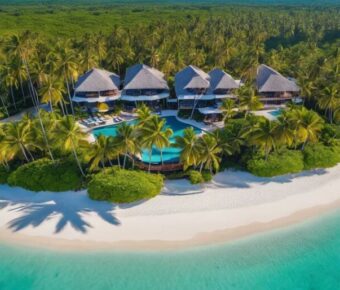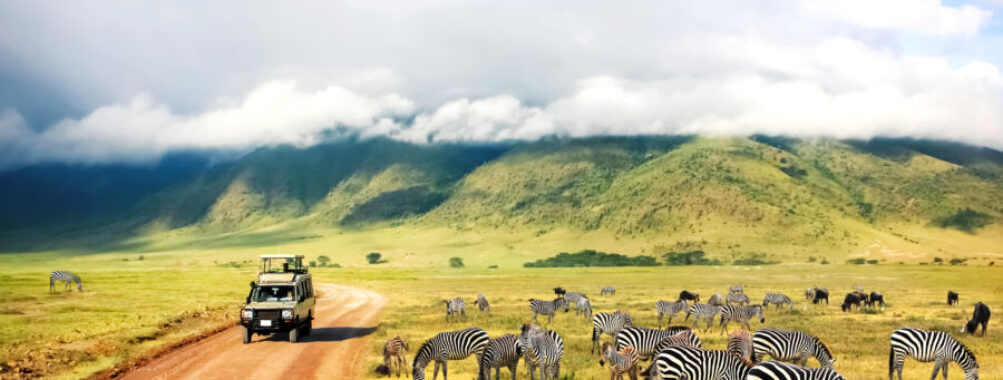
African Hunting Trip Cost: 7 Days Under $5,000?
Planning an African hunting trip can be an exciting yet daunting task, especially when it comes to budgeting. If you’re dreaming of a safari adventure but worried about the cost, you’re not alone. An 8-day plains game hunt with 7 trophies typically costs between $4,000 and $10,000, not including airfare and taxidermy. But don’t let that scare you off – there are options for every budget.
Africa offers a unique hunting experience you can’t find anywhere else. From the thrill of tracking big game to the breathtaking landscapes, it’s a trip of a lifetime. The cost of your safari will depend on factors like the animals you want to hunt, the length of your stay, and the level of luxury you’re after.
You’ll need to consider more than just the base package price when budgeting for your trip. Things like travel costs, taxidermy, and tipping can add up quickly. But with some careful planning, you can make your African hunting dream a reality without breaking the bank.
Contents
- Key Takeaways
- Understanding Hunting Trip Costs
- Daily Rates
- Trophy Fees
- Professional Hunter and Staff Fees
- Types of African Hunting Safaris
- Plains Game Hunting
- Big Five and Dangerous Game
- Customized and Package Hunts
- Preparation and Additional Costs
- Travel and Transportation
- Field Preparation and Taxidermy
- Licenses and Permits
- Accommodations and On-site Expenses
- Lodging and Meals
- Services and Amenities
- Additional Hunting Activities
- Bow Hunting and Wing Shooting
- Photo Safaris and Non-hunting Experiences
- Factors Influencing Total Trip Cost
- Season and Availability
- Length of Stay and Species Hunted
- Experience and Support
- More Travel Guides
Key Takeaways
- African hunting trips range from $4,000 to $10,000 for a basic package
- Costs vary based on game species, trip length, and accommodations
- Additional expenses like airfare, taxidermy, and tips should be factored into your budget
Understanding Hunting Trip Costs
African hunting trips can be pricey, but knowing the main cost factors helps you plan better. Let’s break down the key expenses you’ll face when booking your safari adventure.
Daily Rates
Daily rates cover your basic needs during the hunt. You’ll pay for lodging, meals, and field transportation. Prices vary widely based on the camp’s luxury level and location. Budget-friendly options start around $250 per day, while high-end lodges can charge $1,000 or more.
Most camps include laundry service in their daily rate. This is super helpful since you’ll want clean clothes after dusty days in the bush.
Don’t forget to factor in the length of your stay. A typical safari runs 7-10 days, so multiply the daily rate accordingly. Longer trips often offer slight discounts on the per-day price.
Trophy Fees
Trophy fees are a big part of your total cost. You pay these for each animal you successfully hunt. Prices depend on the species and its size.
Common game like impala might cost $350-500. Mid-range animals like kudu run $1,500-2,500. Rare or dangerous species like lion can exceed $10,000.
Before booking, decide which animals you want to hunt. Make a wish list and add up the fees. This helps avoid surprise costs in the field.
Some outfitters offer package deals with set trophy fees for multiple species. These can save you money if you plan to take several animals.
Professional Hunter and Staff Fees
Your pro hunter (PH) is key to a successful safari. Their fees usually range from $350-650 per day. This covers their expertise, equipment, and time.
Top PHs with lots of experience or special skills may charge more. But for most hunts, a solid mid-range PH will do great.
Don’t forget about other staff. Tips for trackers, skinners, and camp workers are expected. Budget about 10% of your total trip cost for tips.
Some outfits include staff fees in their daily rate. Others list them separately. Always ask so you can plan ahead.
Types of African Hunting Safaris
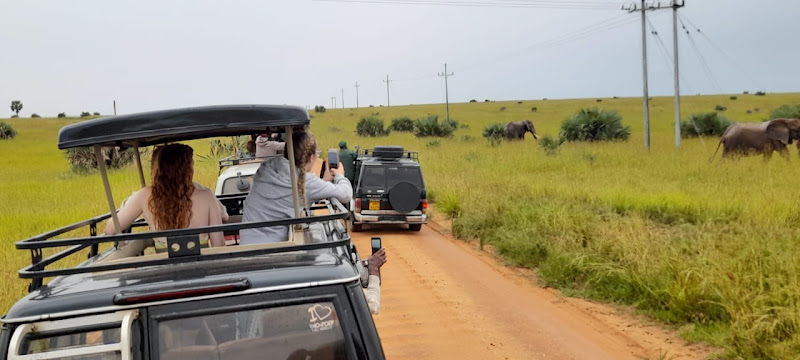
African hunting safaris come in several varieties to suit different interests and skill levels. You’ll find options ranging from beginner-friendly plains game hunts to challenging big game experiences.
Plains Game Hunting
Plains game hunts are perfect if you’re new to African safaris or looking for a more affordable option. These trips focus on antelopes and other non-dangerous species. You can expect to hunt animals like impala, kudu, wildebeest, and zebra.
Costs for plains game packages usually start around $4,000 for a week-long trip. This often includes lodging, meals, and a set number of animals you can take. Zebra and warthog are common targets. You might pay extra for special trophies like blesbok.
Most outfitters use trucks to spot game, then have you stalk on foot. It’s exciting but not as physically demanding as other safari types.
Big Five and Dangerous Game
For a real challenge, try hunting the Big Five: lion, leopard, elephant, rhino, and buffalo. It’s thrilling but pricey. Expect to pay $50,000 or more for a 10-14 day safari targeting one or two of these animals.
Buffalo are the most affordable of the group. A dedicated buffalo hunt might cost $15,000-$20,000. Meanwhile, elephant and rhino hunts can easily top $100,000 due to strict quotas and high trophy fees.
These hunts are intense. You’ll need to be in good shape and comfortable with dangerous situations. Most countries require you to use a heavy caliber rifle for safety.
Customized and Package Hunts
Many outfitters offer pre-set packages that include a mix of animals at a fixed price. These are great if you want simplicity and a clear budget. A typical 7-day package with 5-7 animals might cost $6,000-$10,000.
Custom hunts let you pick exactly what you want to pursue. They’re pricier but give you more control. You can mix plains game with one dangerous species, focus on rare antelopes, or create your dream list.
Talk to several outfitters to compare options. Ask about hidden costs like trophy fees, taxidermy, and tips. A good safari company will help you plan a trip that fits your skills and budget.
Preparation and Additional Costs

Planning an African hunting trip involves more than just booking a safari package. You’ll need to budget for several other expenses to make your adventure a reality.
Travel and Transportation
Getting to Africa can be pricey, but with some smart planning, you can keep costs down. Flights to Johannesburg or O.R. Tambo International Airport typically range from $1,000 to $2,500 depending on your departure city. Once you land, you might need to hop on a smaller plane to reach your hunting area.
Don’t forget about ground transport. Many lodges include transfers in their packages, but double-check to avoid surprises. If you’re exploring on your own, renting a car can give you more freedom. Just make sure it’s a sturdy 4×4 if you’re heading into rough terrain.
Field Preparation and Taxidermy
After a successful hunt, you’ll want to preserve your trophies. Field preparation is usually included in your package, but shipping and taxidermy are extra.
Costs vary widely based on the animal and type of mount:
- Basic shoulder mount: $500 – $1,000
- Full body mount: $2,000 – $5,000+
- Tanning a hide: $200 – $500
Remember to factor in shipping costs too. Sending trophies back home can run you $1,000 to $3,000 or more, depending on size and quantity.
Licenses and Permits
You can’t just show up and start hunting. Each country has its own rules and fees for hunting licenses and permits. South Africa, for example, charges around $200 for a hunting license.
Some animals require special permits that can cost extra. Dangerous game like Cape buffalo often have higher fees. Budget $100 to $500 per animal for these permits.
Don’t forget about gun permits if you’re bringing your own rifle. These usually cost $50 to $200 and require some paperwork. Start this process early to avoid headaches later.
Accommodations and On-site Expenses

African hunting trips offer a range of lodging options and services to make your stay comfortable. Prices can vary widely based on the level of luxury and amenities provided.
Lodging and Meals
Most hunting packages include accommodation and meals in the overall cost. You’ll typically stay in a lodge or tented camp near the hunting grounds. Basic lodges might cost $100-200 per night, while luxury options can reach $500 or more.
Meals are usually hearty and filling to keep you energized for long days in the field. Expect to enjoy local specialties and game meats. Some camps offer an open bar, while others charge extra for alcohol.
If you’re looking to save money, you might consider vacation rentals in nearby towns. These can be more budget-friendly, especially for longer stays or larger groups.
Services and Amenities
Many hunting lodges offer laundry service, which is crucial for keeping your gear clean and fresh. This service is often included, but some camps might charge $10-20 per load.
Wi-Fi access can be spotty in remote areas. Some lodges provide it for free, while others charge a fee. Don’t count on streaming videos, but you should be able to check emails and send messages home.
Some camps offer spa services or swimming pools for relaxation after a long day of hunting. These extras can add $50-100 per day to your bill.
Hotel booking sites can be useful for comparing prices and amenities if you’re planning to stay in a nearby town before or after your hunt. Just make sure to factor in transportation costs to and from the hunting area.
Additional Hunting Activities
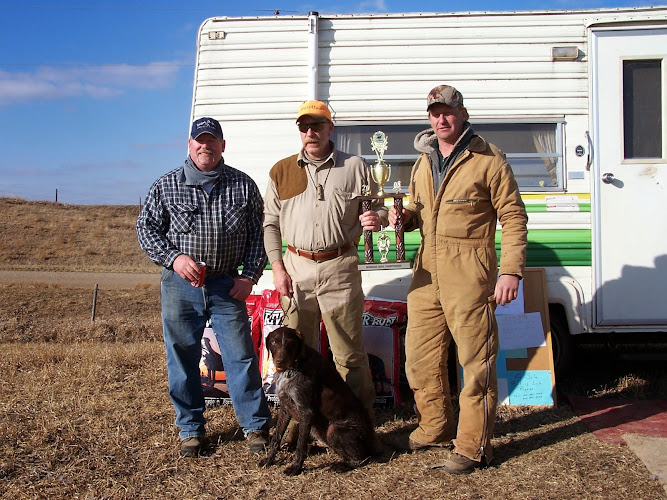
African hunting safaris offer more than just big game pursuits. You can try your hand at different hunting styles or explore non-hunting options to round out your trip.
Bow Hunting and Wing Shooting
Bow hunting brings a new level of challenge to your African safari. You’ll need to get much closer to your prey, making for an intense, up-close experience. Many outfitters offer specialized bow hunting packages with blinds set up near waterholes. Prices for bow hunting trips are usually similar to rifle hunts, but you might pay extra for specialized equipment rental.
Wing shooting is another popular add-on. You can hunt doves, pigeons, or waterfowl in between big game hunts. A half-day wing shooting trip might cost $150-$250, including guns and ammo. It’s a fun way to mix things up and improve your shooting skills.
Photo Safaris and Non-hunting Experiences
Not everyone in your group may want to hunt. Photo safaris let non-hunters join the adventure. You’ll track animals just like on a hunting trip, but shoot with a camera instead of a gun. Prices for photo safaris are often 10-20% less than hunting packages.
You can also add day trips to your itinerary. Options include visits to local villages, wine tasting tours, or trips to nearby national parks. These extras usually cost $100-$300 per person per day. They’re great for rest days or if you tag out early on your hunt.
Factors Influencing Total Trip Cost
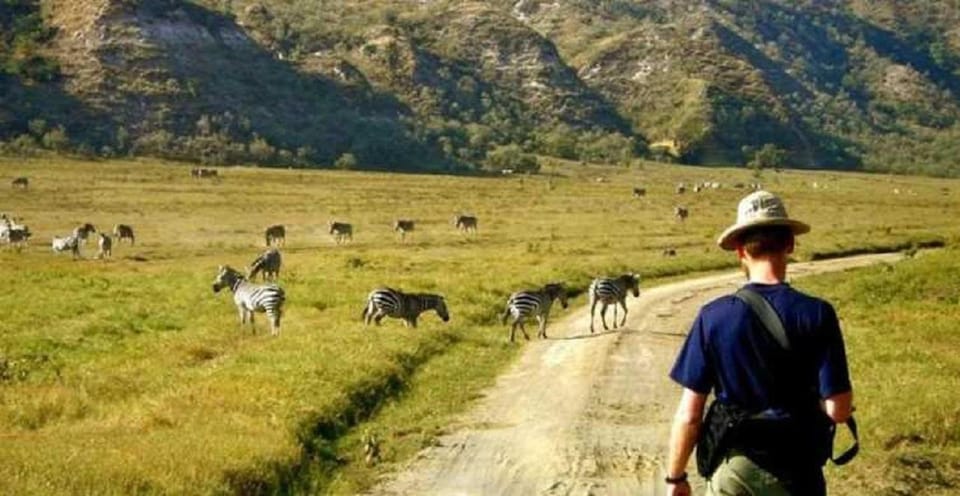
Planning an African hunting safari involves several key elements that impact the overall cost. The timing, duration, and specific animals you want to hunt all play crucial roles in determining your budget. Let’s break down the main factors to consider.
Season and Availability
The time of year you choose for your safari can greatly affect prices. Peak seasons, typically June to October, often come with higher costs due to increased demand. During these months, the weather is drier and animals gather around water sources, making them easier to spot.
Off-peak seasons can offer better deals, but you might face challenges like heavy rains or thick vegetation. Some lodges close during these times, limiting your options.
It’s smart to book early, especially for popular dates. Last-minute trips can be pricey or have limited choices. Some outfitters offer discounts for booking well in advance.
Length of Stay and Species Hunted
Your trip’s duration and the animals you want to hunt are big cost factors. Longer stays mean more daily fees for lodging, food, and guide services. A 7-day hunt will cost less than a 14-day adventure.
Different animals have varying trophy fees. Plains game like impala or warthog are usually cheaper to hunt than big game like buffalo or sable. Some packages offer a set number of animals for a flat fee.
Here’s a rough price guide for some popular species:
- Plains Game Package (7 days): $3,500 – $7,000
- Buffalo Hunt (10 days): $12,000 – $20,000
- Sable Hunt (7 days): $8,000 – $15,000
Remember, these prices can vary widely based on location and outfitter.
Experience and Support
The level of comfort and expertise you want affects costs too. Budget camps with basic amenities are cheaper than luxury lodges with gourmet meals and spa services.
Your hunting experience matters. Novice hunters might need more guidance, which can increase costs. Meanwhile, experienced hunters might opt for more challenging hunts or remote areas.
The quality of your professional hunter (PH) is crucial. Top-rated PHs charge more but offer better tracking skills and higher success rates. They also ensure a safer experience.
Support staff like trackers, skinners, and camp help add to the total. Some packages include these services, while others charge extra.


